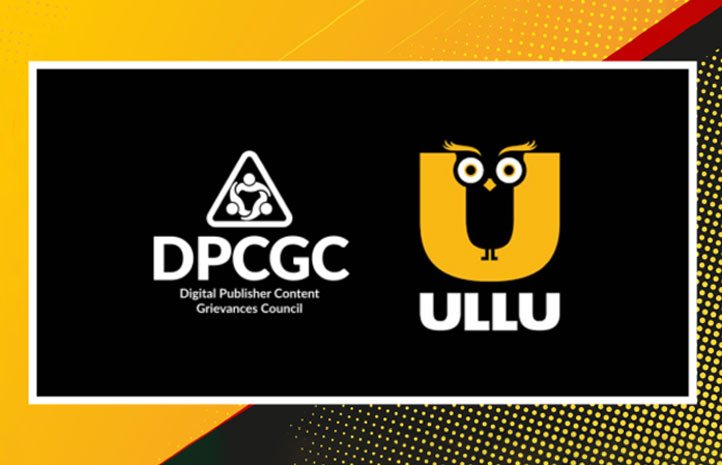Digital Publisher Content Grievances Council (DPCGC), a self-regulatory body invoked for the first time a Intermediary Guidelines and Digital Media Ethics Code Rules, 2021 (IT Rules 2021) reprimanding OTT platform ULLU for hosting content which is obscene in nature. The council took grave objection to the 'content available on the platform in its present form. It found out that most of the episodes in all these series contain sexual and nude scenes'. The council issued an advisory to take off these web-series altogether or make suitable edits (if even feasible) to the offending and objectionable scenes to ensure that they are in compliance with the IT rules 2021.'Further it said, 'all the content on its platform must comply with the test of obscenity and pornography'.
This advisory was in response to appeal by a complainant who complained about web series on ULLU platform showing obscenity and nudity. He raised the grievance with the platform but was dissatisfied and escalated the matter to DPCGC. Earlier also, similar complaints were raised against several web-series promoting obscene content like TVF Media Pvt Ltd series 'College Romance'.
ULLU platform defended content on its platform saying, 'under Article 19(1)(a) of the Constitution of India', web-series as well as platform enjoys artistic freedom which is a part of freedom of speech. 'The so-called offensive scenes of the web series are the artistic portrayal of the events and a part of artistic work', added further. The platform also defended saying that the platform does not allow a child to sign in to their platform, is only targeting adults (those who are above 18 years) and viewership is based on discretion.
OTT platforms have long taken advantage of legal void to regulate OTT content. However, with IT Rules, 2021 OTT platforms are left to be regulated by self-regulatory body. According to the IT Rules 2021, publishers of online curated content should adhere to Code of Ethics and for addressing complaints made in relation to publishers it established three tier structure:-
- Level I: Self-regulation by the publishers;
- Level II: Self- regulation by the self-regulating bodies of the publishers;
- Level III: Oversight mechanism by the Central Government
DPCGC is a level II body registered with Ministry of Information and Broadcasting under IT Rules, 2021 for OTT platforms or online curated content providers(OCCPs). It was setup under the aegis of Internet and Mobile Association of India (IAMAI), in June 2021.
The Grievance Redressal Body(GRB) is constituted under the DPCGC to address complaints pertaining to online curated content on DPCGC member platforms. It can issue following guidance, advisory, direction while dealing with the grievances:-
- warning, censuring, admonishing or reprimanding the publisher;
- requiring an apology by the publisher;
- requiring the publisher to include a warning card or a disclaimer;
- in case of online curated content, direct the publisher to,-
- reclassify ratings of relevant content;
- make appropriate modifications in the content descriptor, age classification and access control measures;
- edit synopsis of relevant content;
In the recent order by DPCGC, it clearly laid out that Article 19(1)(a) which ensure and guarantees 'Freedom of Speech and Expression', is not absolute and is subject to 'reasonable restrictions' mentioned in Article 19(2) and one such restriction is that art and culture should not be obscene. The order says, 'that both obscenity and pornography offend against public decency and morals though pornography is obscenity in a more aggravated form'. Union Minister Anurag Thakur earlier this year in March said, 'These platforms were given the freedom for creativity, not obscenity and profanity". Hence, the subjective question of what is obscene and what is not, is a debatable question. But clearly this is a serious issue when it comes to children as easy access to these platforms, where children can easily lie about their age. The lack of proper age verification methods by these OTT platforms is a major hindrance when it comes to protecting children from age-inappropriate content like sex and nudity. Digital India Act 2023 is expected to fix the loophole in OTT platforms regulatory framework in protecting children.


